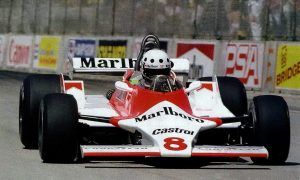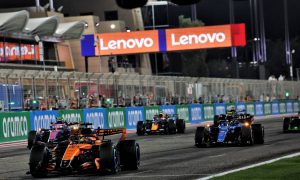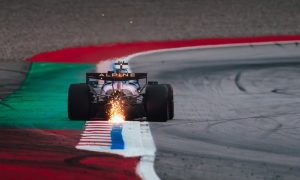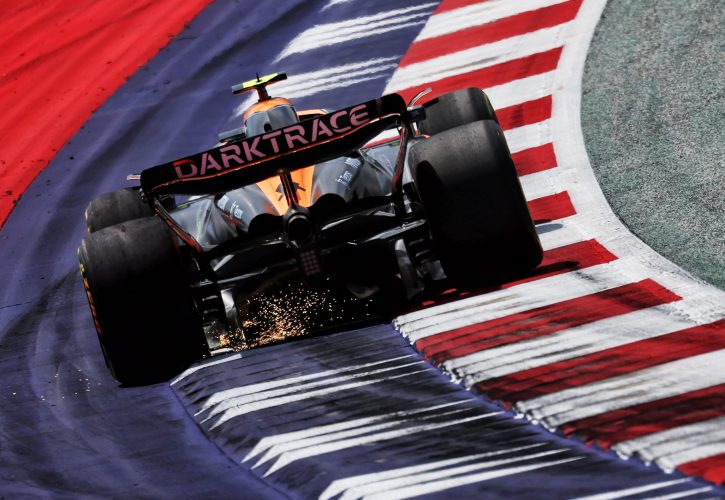
FIA president Mohammed Ben Sulayem says it’s up to F1’s circuits – not the sport’s governing body – to solve track limit issues, and their failure to do so could result in a venue losing its race.
Last weekend’s Qatar Grand Prix saw dozens of penalties handed out to drivers for track limit abuses, a situation similar to what F1 experienced in Austria last summer.
The chaotic and often confusing nature of the situation has done little to embellish the image of F1, and Ben Sulayem wants change. However, he believes the burden is on the circuits to make the necessary modification to solve or mitigate the issue, not for the FIA to improve its policing.
"You're absolutely right about it, we had the same issue in Austria, it was 1200 [offences there],” he said when queried on the topic of track limit infringements and how to solve it.
"And I have to say, congratulations to the stewards because they spotted it. But is that the solution? No.
"The solution is to improve the track itself. I know some are resistant to it, but to tell you the truth, if they don't, there is no race. It is as simple as this. We can't afford this."
Last weekend’s track limit controversy was compounded by safety concerns related to Pirelli’s tyres, with a sidewall separation problem detected by the manufacturer on its product.
This led the FIA to mandate a tyre life of maximum 18 laps for Sunday’s race on the grounds of safety.
But again, Ben Sulayem insisted that the onus was on F1’s tracks to design the proper kerbs that deter abuses.
"We have to work on a solution," explained Ben Sulayem. "One of the solutions is to make it slippery when they go off. Nobody can stop the drivers except the drivers themselves.
"We can think of the height [of the kerbs]. Does it damage the cars? Or maybe there is a possibility of putting some gravel, but with gravel, we have to be very careful.
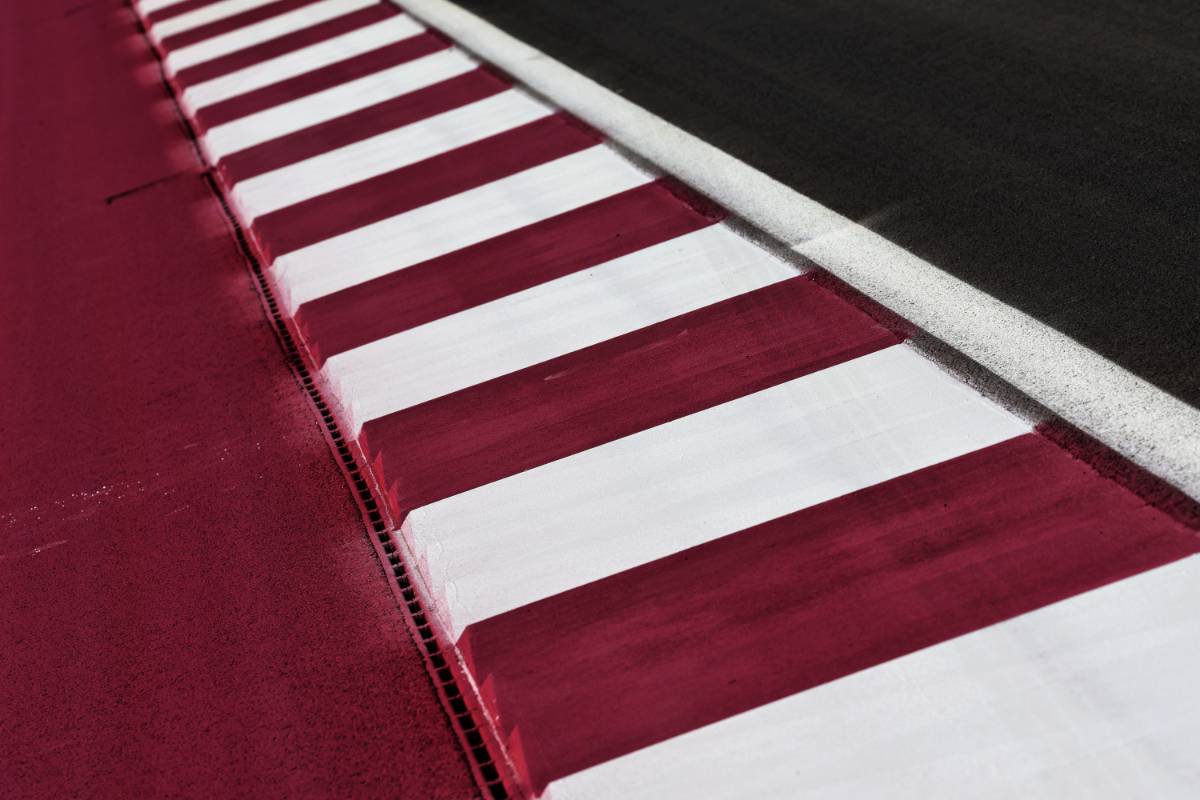
"How deep is the gravel? Because you don't want anyone to get stuck. And how big is the gravel? because you don't want the car to be damaged. It is a balance.
"But I believe now it's not a matter of: oh, do we do it? We have to do it. And we have to listen to the drivers mainly, to the feedback from them.
"I will have to make it urgently because it has to be implemented for next year. We cannot afford [for it to continue], especially where we see it all the time."
It’s often been argued that Formula 1 could solve the complexities of track limit detection with technology. Ben Sulayem agrees on this but insists the FIA does not have the proper resources to invest in the right technology.
"The use of technology should be there," he said. "It is being used in a lot of areas, but the FIA needs more resources to invest back into the sport.
"I'm not hiding here: we need more resources. I mean, it's a $20 billion operation here and we cannot run it on a shoestring.
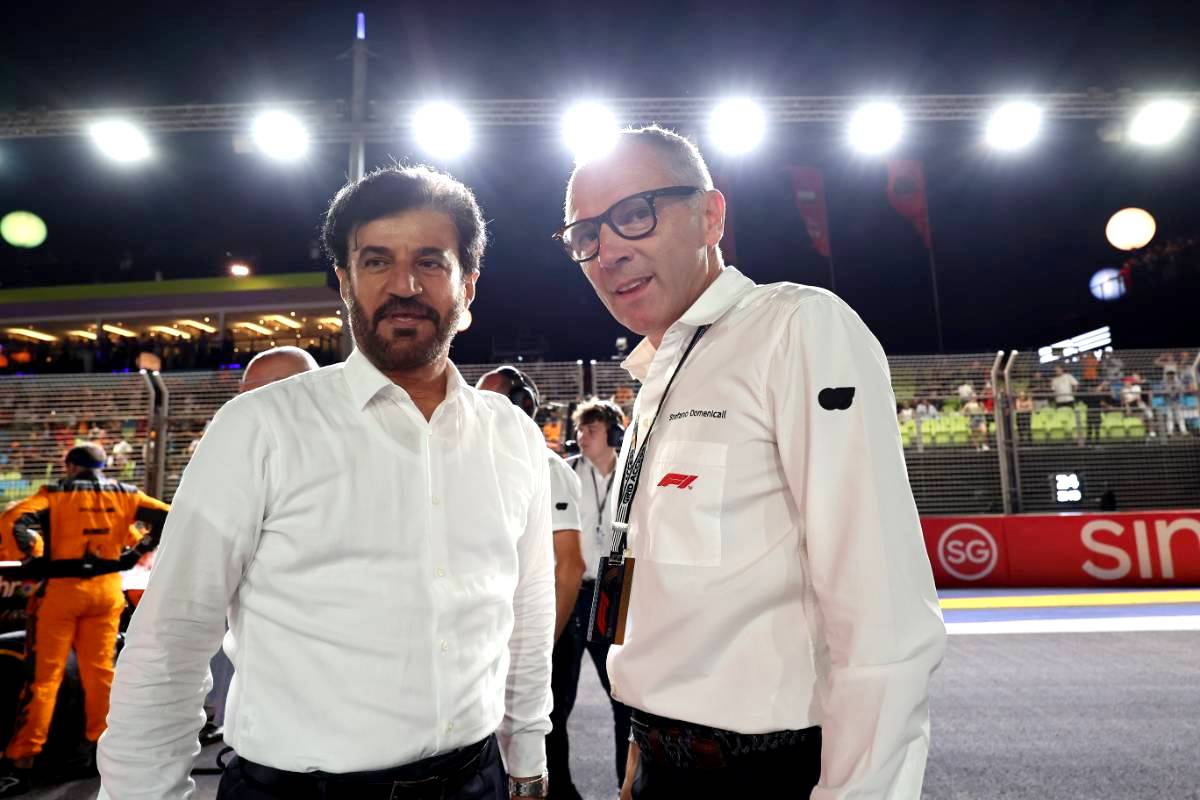
Perhaps addressing the elephant in the room, Ben Sulayem put forward the idea of the FIA needing a better “arrangement” with F1, which hints at a higher monetary contribution from commercial rights holder Liberty Media.
"Our agreement has to be better," he said. "You have to remember one thing: we own the championship. I represent the landlord, and we lease it.
“Our mission is different to Liberty but we are in the same boat. We should not be running this big responsibility with a shoestring. We are transparent.
"[We tell people] this is what it costs. People are bragging about how much each F1 team is worth, but the FIA should be free and have the resources to run it in the best way.
"Every time we are better, we make the teams better and we make the sport better."
Keep up to date with all the F1 news via Facebook and Twitter



